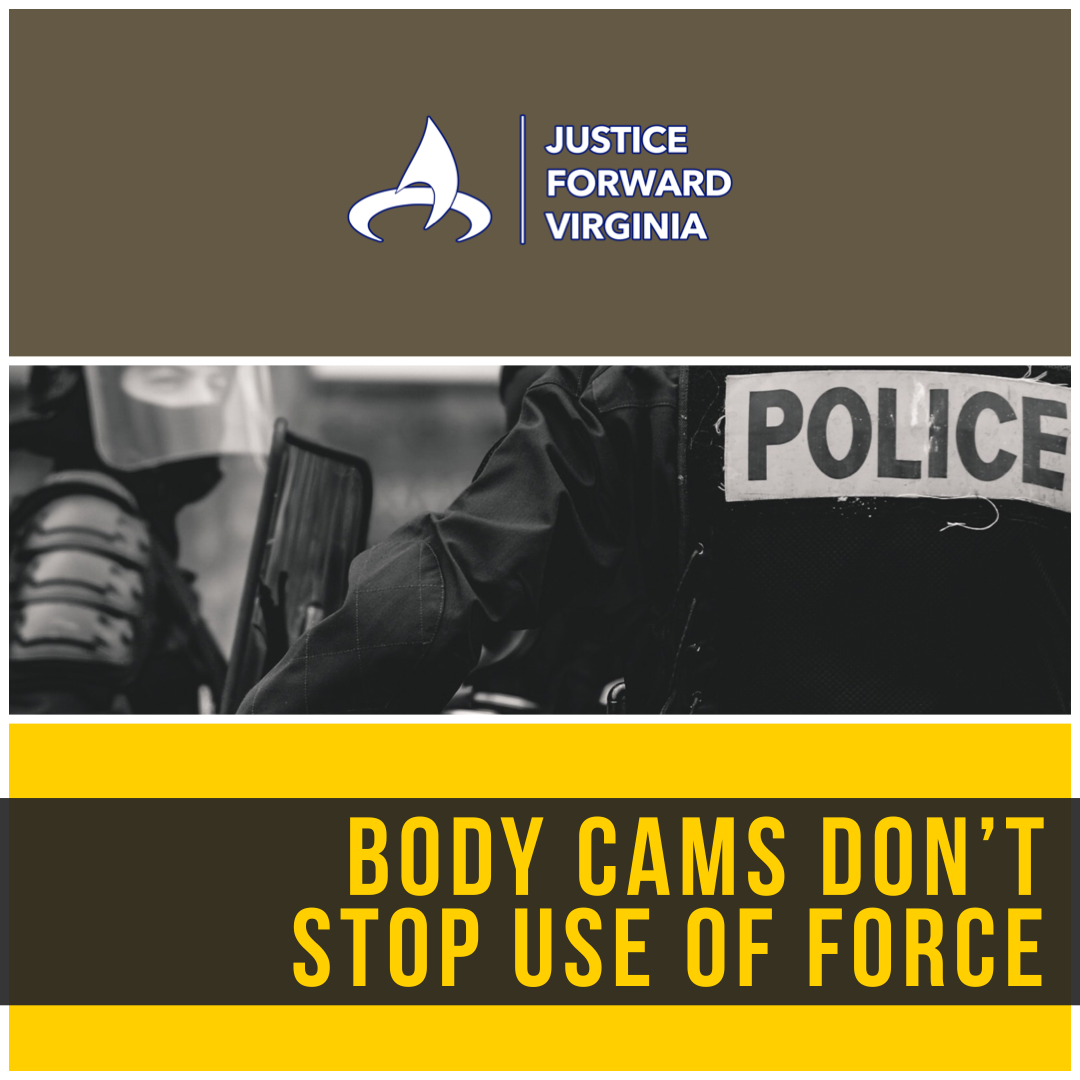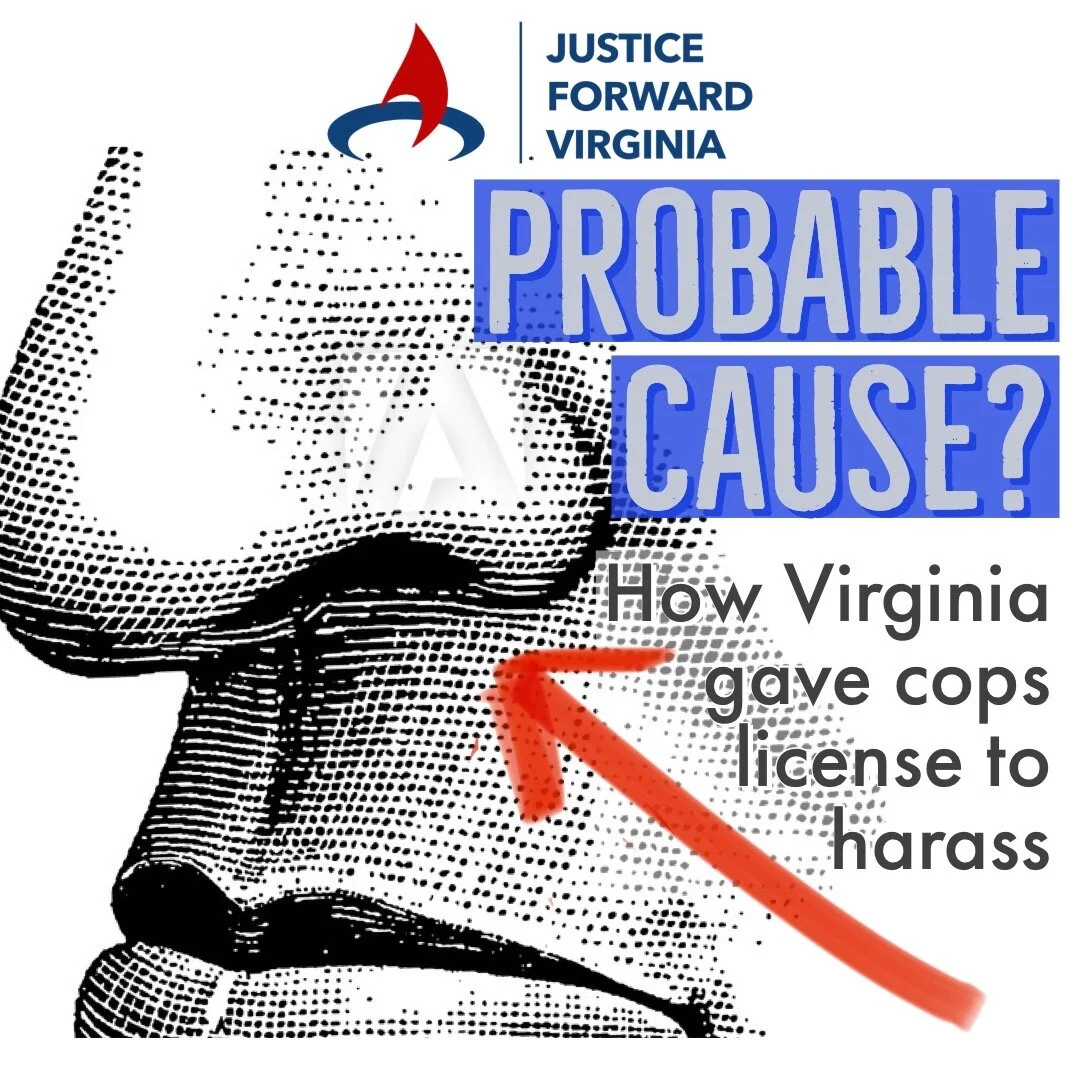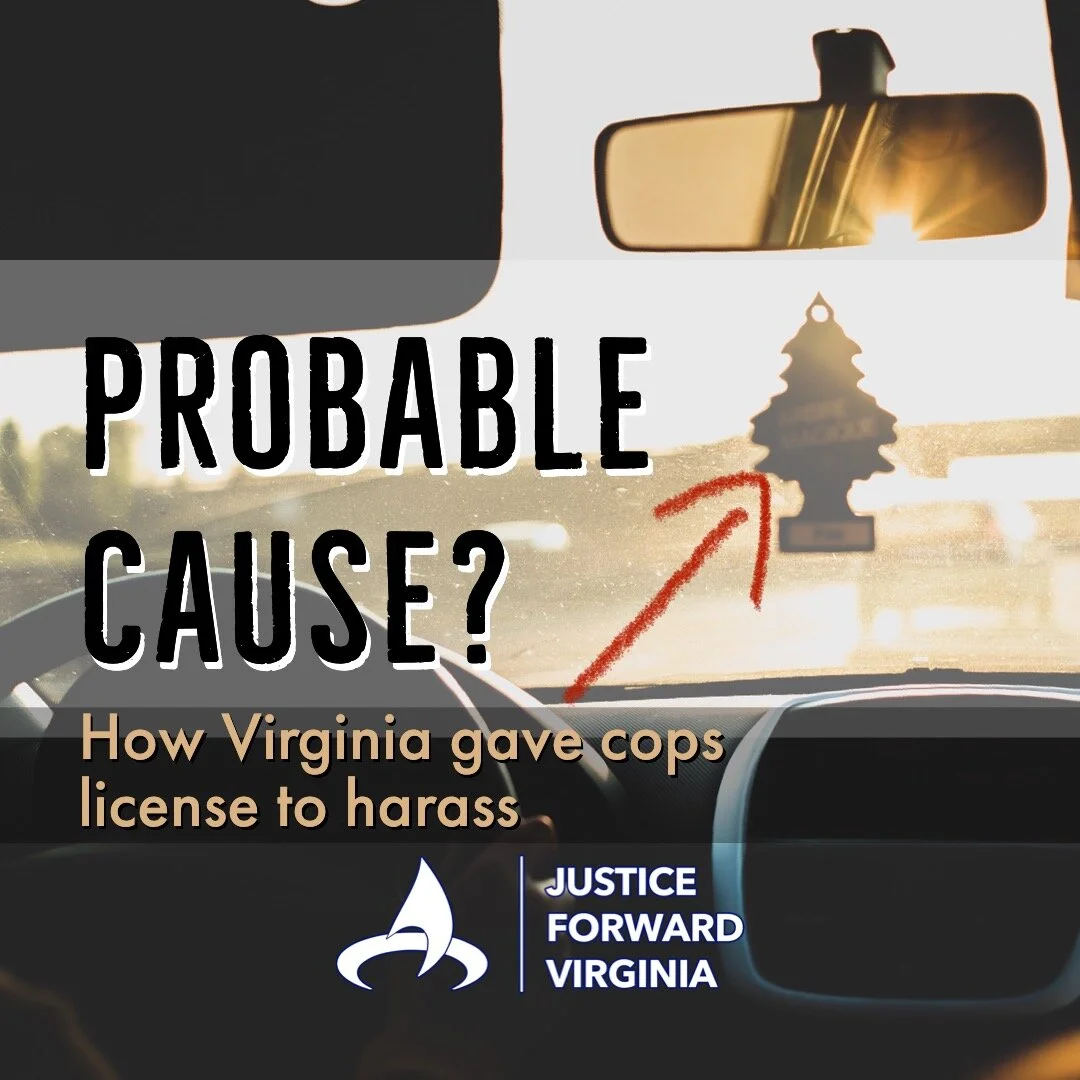Criminal Justice Reform IS Police Reform
Criminal justice reform is back in the news, perhaps more prominently than ever, what with the tragic deaths of Ahmaud Arbery, Breonna Taylor and George Floyd, and the subsequent protests this week and last. This has seemingly made reformers out of many who never supported criminal justice reform until now, including elected officials in Virginia. Although interest among some is genuine, in many cases, policymakers are simply looking to take control of the narrative to ensure reforms are as meager as possible and preserve the status quo.
“‘Defunding’ suffers from a messaging problem; it is, in fact, much less controversial that the term would suggest.”
We can’t let that happen. Many police reforms, like implicit bias training and body cams, do little to solve the problem of police violence, let alone the condition at its root—our militarized, punitive and carceral model of law enforcement and criminal justice. For reforms to meaningfully value black lives, they must reduce not only the number of black Americans assaulted or killed by police, but also the 1 million black Americans in jails and prisons, and the 1.4 million on probation or parole.
Much has been made recently about defunding the police, which is posited as the alternative to surface-level reforms. “Defunding” suffers from a messaging problem; it is, in fact, much less controversial that the term would suggest, which is why Justice Forward prefers to avoid it in its advocacy. “Defunding the police” simply means reducing the role police and prisons serve in society while expanding services that make communities healthier, safer and more equitable. Directly or indirectly, the best criminal justice reform initiatives almost always do that, including almost all of Justice Forward’s 2020-21 legislative agenda.
If there were a different paradigm that evidence showed could reduce crime while saving money and putting fewer people behind bars, wouldn’t it be worth examining? A system that, for example, treated addiction as a disease and drugs as a public health problem, sought to use restorative justice wherever possible, and rebuilt mental health treatment infrastructure so we could stop relying on jails and prisons as de facto psychiatric hospitals?
“‘Defunding the police’ simply means reducing the role police and prisons serve in society while expanding services that make communities healthier, safer and more equitable.”
Research demonstrates that implementing policies such as these would reduce crime rates and recidivism without relying on arrest and incarceration. Many if not most communities across the country are already moving toward this model, by creating diversion programs and treatment courts, and building more treatment facilities in lieu increasing jail capacity. Through their actions, these communities are already showing support for a “defunding” process. If you prefer treatment over arrest and incarceration, restoration and rehabilitation over retribution, and addressing the root causes of involvement in the legal system, such as homelessness, poverty, and mental illness, then you likely support “defunding,” as well.
As lawmakers move toward debating and implementing police reform, we urge you to remain informed and involved. Remember that criminal justice reform is police reform, and do not settle for band-aids. The traditional model of arrest, prosecution and incarceration isn’t working. Despite massive law enforcement budgets, 2.3 million people behind bars -- 25% of the world’s incarcerated population -- and another 4.5 million on probation or parole, America has one of the highest crime rates in the developed world. Our system is thoroughly broken, with black Americans bearing the brunt of it. Comprehensive change is imperative.
What can you do to ensure our lawmakers get it right? Consider supporting Justice Forward Virginia. Despite being the predominant civil rights issue of our time, the obstacles to criminal justice reform often still seem insurmountable. Entire institutions exist just to preserve the status quo, and they have a great deal of influence over legislation, particularly when it’s in the spotlight, like criminal justice reform is now.
Justice Forward is the only Virginia advocacy organization that makes criminal justice reform at the statewide level its only business. As it stands, we are led and operated on a volunteer basis, mainly by current and former public defenders. Even so, we had tremendous success during the 2020 legislative session, with three of our bills passing both chambers, despite the tough environment for justice reform legislation in the General Assembly. With the issue now paramount among lawmaking priorities in Virginia, we do not want to miss the opportunity for transformational change.
Your contributions will enable Justice Forward Virginia to employ a full-time managing director, thereby enhancing the consistency and breadth of its advocacy efforts. For more information about our strategic goals for 2020-23, please email us. We appreciate your support.










